

COURTESY IMAGE
Patients at Vascular Vein Centers are strongly encouraged to wear graduated, medical grade compression stockings before and after treatment. They are the gold standard for the management of symptoms and signs of venous disease. They help support the superficial veins, which lie outside the muscle tissue and return blood to the deep veins in the legs and then to the heart and lungs.
Symptoms of venous disease include pressure, a full or heavy sensation and even aching as the day goes on, and later, dryness and itching of the lower leg. The signs of venous disease include spider veins, varicose veins, leg swelling and skin changes with thickness, browning and scaling that can progress to lower leg ulcers because the skin becomes brittle.
People must be careful when selecting compression stockings. There are many brands and styles that claim to be “graduated compression” or “compression” socks. Even if a product claims to provide graduated compression that doesn’t mean it is graduated unless it specifically has a compression class indicated, such as 20-30 mmHg.
Compression should be held to a standard and graduated to optimally assist the calf muscle, or “calf pump,” to perform. It works optimally when the compression is greatest at the ankle, 70 percent at the calf and, if the stocking goes to the thigh, 40 percent at the thigh.
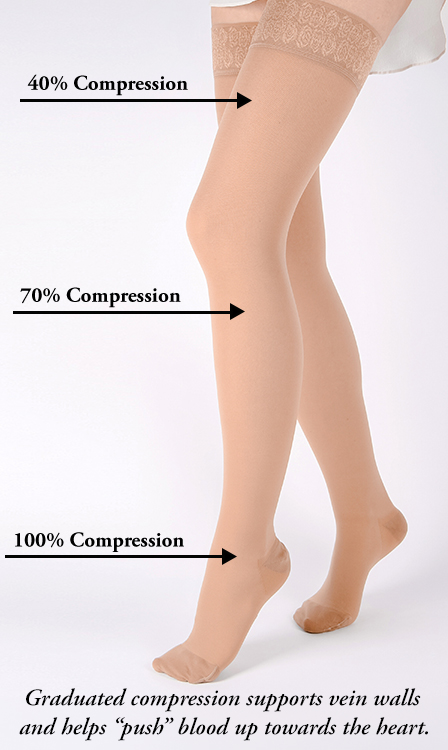

COURTESY IMAGE
When shopping for medical grade compression stockings, there are several considerations. People should be fitted, or measurements should be taken early in the day because the leg is at its best size then. Later in the day, the leg may have swollen, and the stocking could potentially be too large.
Stockings are categorized by their degree of compression; 15-20 mmHg is the lowest compression one should wear. Most people, especially women after pregnancy and those whose jobs entail significant standing, need 20-30 mmHg. People with significant skin changes and/or swelling may need 30-40 mmHg or Velcro compression wraps.
There are now assistive devices to help those having trouble getting the stockings on and off.
To help patients, as well as the general public, who can be seen without an appointment, each staff member at Vascular Vein Centers is certified in fitting compression stockings. Vascular Vein Centers has medical grade, graduated compression socks and stockings, as well as assistive devices, available for purchase at every clinic. We will work with patients to help determine the best product for their lifestyles.
We also have a 30-day return policy as a courtesy to our clientele to help ensure we find the right stocking for them. Whether it is for a patient or someone seeking to prevent a problem, we store the person’s information and can have stockings sent to the home in the future.
When treatment for venous disease is recommended, Vascular Vein Centers provides several minimally invasive procedures, including foam sclerotherapy using Varithena® and endovenous laser therapy (EVLT).
These treatments eliminate the affected veins without removing them, thus decreasing patient discomfort and allowing a faster return to normal function.
The blood is rerouted through the healthy veins, and the treated veins are absorbed by the body over time.
These treatments are minimally invasive outpatient procedures that are performed by specialists in the comfort of an office setting at Vascular Vein Centers.




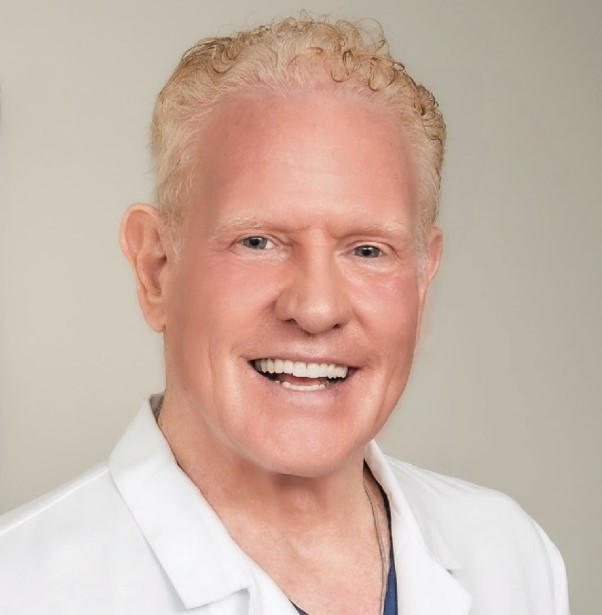
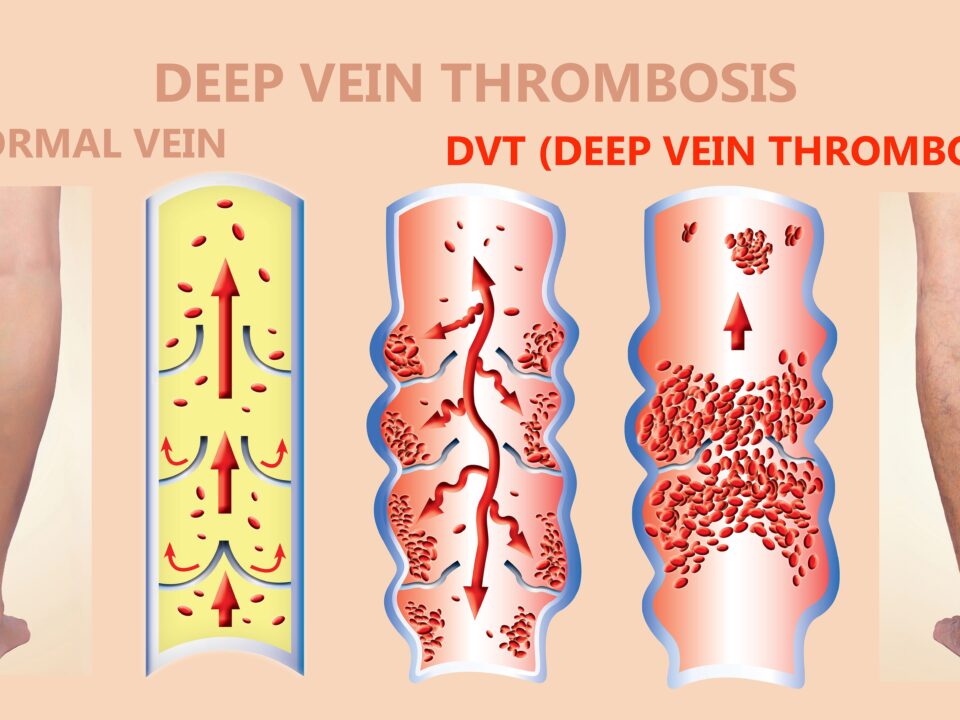
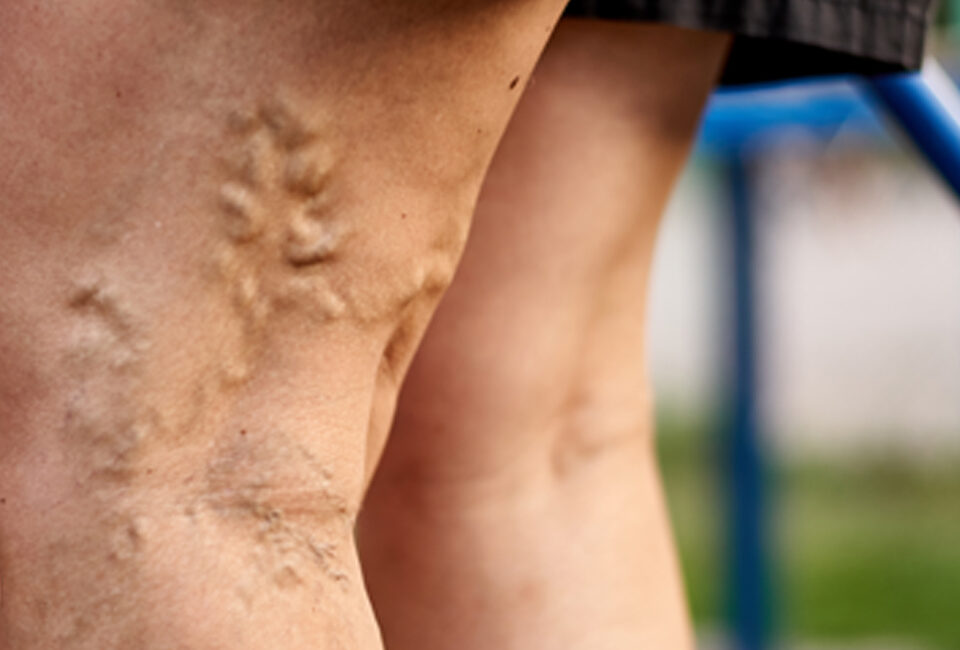
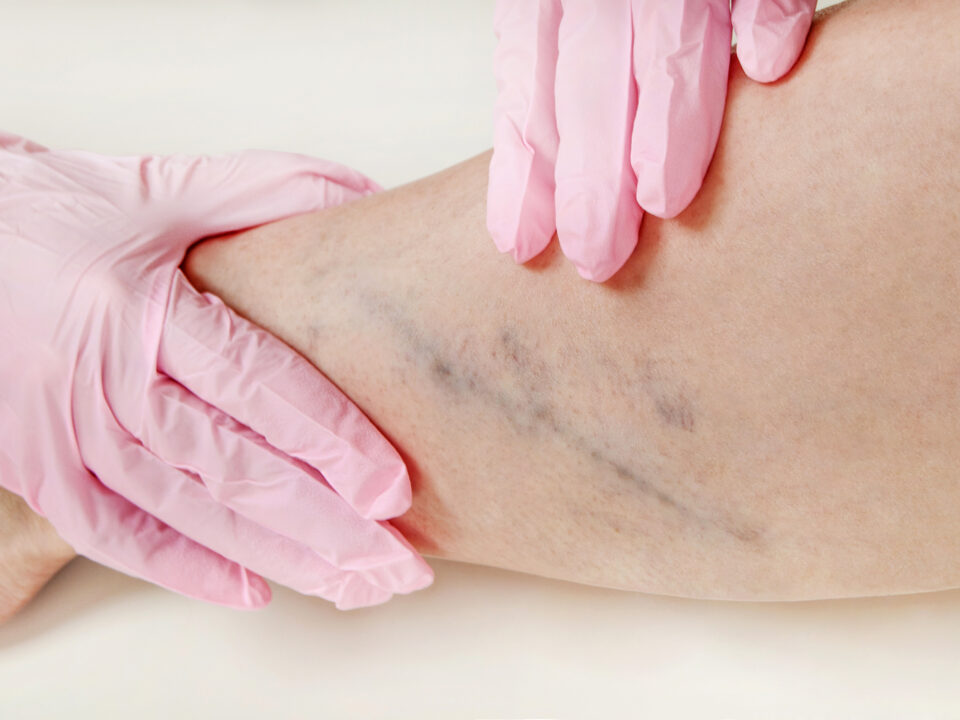
Leave a Reply